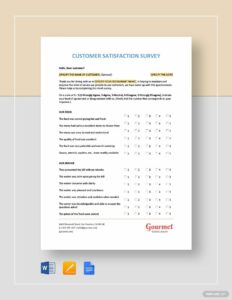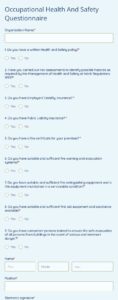Managing cash effectively is essential for any restaurant. This restaurant cash handling policy template is intended to ensure proper procedures are followed and potential risks are mitigated. It aims to provide a standardized guideline for handling cash transactions accurately and securely. Adopting this policy will help restaurants maintain financial integrity and comply with relevant regulations.
Establishing clear policies and procedures is the foundation of effective cash management. Implementing a restaurant cash handling policy template allows business owners to create uniformity in practices across all locations and employees. This streamlined approach reduces errors, minimizes opportunities for theft, and ensures consistency in handling cash transactions. Incorporating security measures and regular audits further enhances the safety and accuracy of the cash handling process.
Responsibilities and Roles
Intro: Outlining roles and responsibilities is fundamental to effective cash management. This section should clearly define the duties of employees involved in cash handling and provide guidance on proper reporting and documentation procedures.
1. Cashiers:
- Handle all cash transactions, including receiving payments, making change, and issuing receipts.
- Maintain accurate records of cash received and dispensed.
- Secure cash in a safe or designated place when not in use.
- Discreetly report any suspicious activity or counterfeit currency.
2. Managers:
- Responsible for overseeing cash handling procedures and enforcing compliance with the policy.
- Ensure adequate cash is available in registers and maintain a secure cash float.
- Conduct regular audits and cash count verifications to ensure accuracy.
- Address any irregularities or discrepancies promptly.
Security Measures
Intro: Establishing robust security measures is crucial to safeguard cash and prevent theft or fraud. This section should detail specific security protocols for handling cash, securing the premises, and monitoring transactions.
1. Cash Handling:
- Count cash in a secure location away from public view.
- Keep cash drawers locked when not in use and secure excess cash in a safe.
- Avoid leaving cash unattended and ensure it’s always in the possession of an authorized employee.
- Train employees to recognize counterfeit currency and report any suspicious bills.
2. Premises Security:
- Install surveillance cameras to monitor cash handling areas and deter theft.
- Ensure proper lighting in all areas where cash is handled.
- Control access to cash handling areas by authorized personnel only.
- Implement regular security audits to identify potential vulnerabilities.
Conclusion
Implementing a comprehensive restaurant cash handling policy template is vital for maintaining financial integrity and ensuring operational efficiency. This policy provides clear guidelines for employees, establishes roles and responsibilities, and outlines security measures to safeguard cash. By adhering to these procedures, restaurants can reduce the risk of theft, fraud, and errors, ultimately contributing to the overall success of the business. Regular reviews and updates of the policy ensure that it remains effective and aligned with evolving business needs and regulatory requirements.
Adopting a restaurant cash handling policy template is an essential step for any business looking to streamline its operations, enhance security, and maintain accurate financial records. Implementing these standardized procedures not only protects the financial integrity of the business but also instills confidence among customers and employees.
FAQs
What are the primary objectives of a restaurant cash handling policy template?
A restaurant cash handling policy template aims to establish standardized procedures for handling cash transactions, ensure accurate and secure cash management, minimize the risk of theft and fraud, and comply with relevant regulations.
Who should be responsible for enforcing the restaurant cash handling policy?
Management is responsible for enforcing the restaurant cash handling policy. Managers should ensure that employees are adequately trained, monitor compliance with the policy, conduct regular audits, and address any irregularities or discrepancies promptly.
What are some common security measures included in a restaurant cash handling policy template?
Common security measures include counting cash in a secure location, keeping cash drawers locked when not in use, securing excess cash in a safe, training employees to recognize counterfeit currency, installing surveillance cameras, ensuring proper lighting, and controlling access to cash handling areas.

